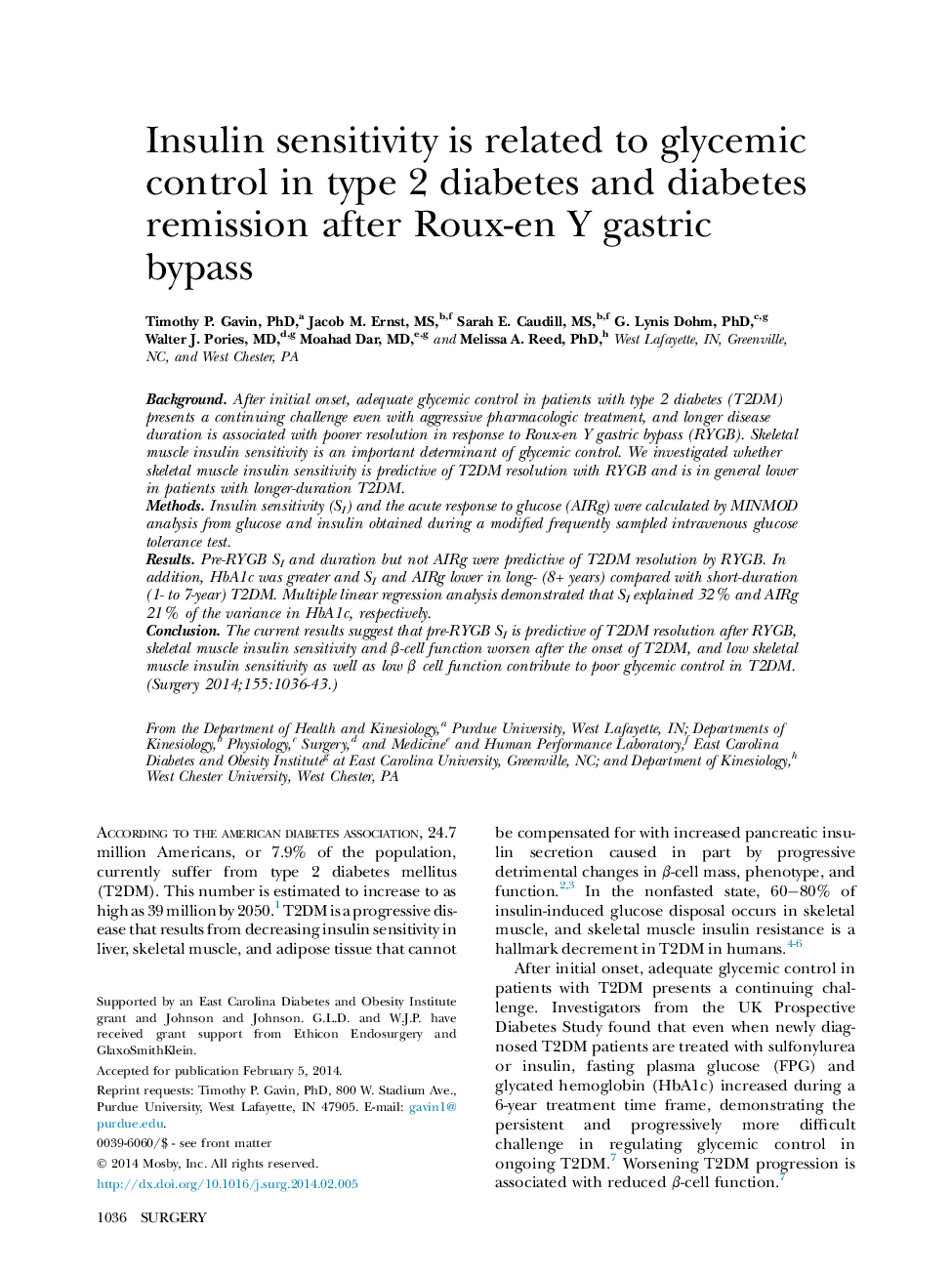| Article ID | Journal | Published Year | Pages | File Type |
|---|---|---|---|---|
| 4308062 | Surgery | 2014 | 8 Pages |
BackgroundAfter initial onset, adequate glycemic control in patients with type 2 diabetes (T2DM) presents a continuing challenge even with aggressive pharmacologic treatment, and longer disease duration is associated with poorer resolution in response to Roux-en Y gastric bypass (RYGB). Skeletal muscle insulin sensitivity is an important determinant of glycemic control. We investigated whether skeletal muscle insulin sensitivity is predictive of T2DM resolution with RYGB and is in general lower in patients with longer-duration T2DM.MethodsInsulin sensitivity (SI) and the acute response to glucose (AIRg) were calculated by MINMOD analysis from glucose and insulin obtained during a modified frequently sampled intravenous glucose tolerance test.ResultsPre-RYGB SI and duration but not AIRg were predictive of T2DM resolution by RYGB. In addition, HbA1c was greater and SI and AIRg lower in long- (8+ years) compared with short-duration (1- to 7-year) T2DM. Multiple linear regression analysis demonstrated that SI explained 32% and AIRg 21% of the variance in HbA1c, respectively.ConclusionThe current results suggest that pre-RYGB SI is predictive of T2DM resolution after RYGB, skeletal muscle insulin sensitivity and β-cell function worsen after the onset of T2DM, and low skeletal muscle insulin sensitivity as well as low β cell function contribute to poor glycemic control in T2DM.
